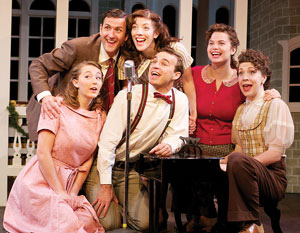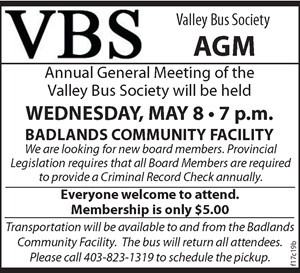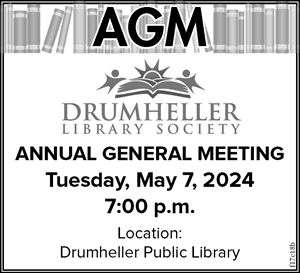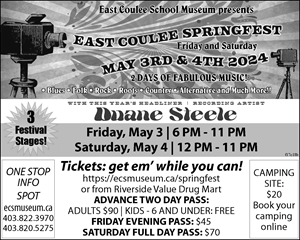In May of 1945 Berlin fell to the allies. From the east Russia entered the city, from the west, the Western allies pressed on to force a surrender.
In history books, that is when the war ended. The world rejoiced and there was dancing in the streets.
It would be years however until some normalcy was restored to Europe and the world. For a 15-year-old boy in Poland, it was the beginning of his journey to freedom and ultimately Canada.
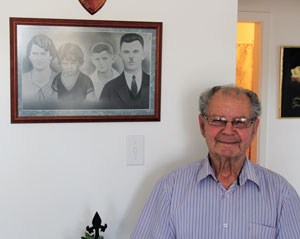
Henry Barborka was only 17 when his third attempt to escape from Poland to the west following World War II, was successful.
Henry Barborka was just 9 years old when World War II broke out. It was a tough life with little food. He does remember the family was forced from its home for six months only to return to nothing.
Life carried on, however now everything was German. He was taught to speak German in school and there was punishment even if he and friends spoke Polish on the playground.
“The war ended in 1945 when the Russians came and gave us freedom… freedom? Bologna! We were more worse off than during war time,” said Henry.
When the war ended, he was 15. He had also lost his father to the Russians and he had a brother in England who was in the Polish Army.
“I thought, I’m going to escape to England to my brother, and I am going to come back and free Poland and be a hero,” chuckles Barborka.” “You know kids…”
He befriended a school chum who also had designs on leaving Poland, and they planned their first escape attempt.
First by sea, the two teenagers travelled to the port city of Gdynia. The naive couple found a port with fortified security and dozens of armed guards. Through some quick thinking and sneaking, they found their way on to a small craft with an English flag. They asked one of the mariners if they could board and he hid them under a tarp. A few minutes later they were discovered by Polish police. They got a good licking and were sent home.
His second attempt was about a year later. Now 16, he hatched a plan with another friend to head first to East Germany and then to the west. They took a train to the border but didn’t have documents to cross. They were walking along at the station and were being followed by a soldier. Henry stopped to tie his shoe. While he was tying his shoe he saw his friend being confronted by the soldier. Henry bolted.
Separated from his friend, disheartened, he went home.
Six months later he learned the fate of his friend, who finally returned home. However, he had made it to the west. The soldier who confronted him, simply wanted a light for his cigarette.
After another six months, his friend tells Henry he is planning to return to the west and Henry joined him for this third attempt.
This time the plan to enter East Germany was to cross a river at midnight.
They made the crossing and then travelled six days to reach the western border. Across the border he had an aunt to stay with.
The night they arrived near the border they went to a train station, to get warm and rest. They were awoken with by a Russian soldier and German policeman asking for papers. Using their German, they pretended they were from a town just down the road, but it was unsuccessful. They were locked up and in his clothing the soldiers found Henry’s documentation.
He was locked up and slated to be shipped back to Poland to be punished. Two days before he was to be shipped, he was with a work crew heading out to hard labour when he slipped away. Deflated he decided to head back to Poland. He approached the river crossing to go back and was rearrested, and was eventually shipped back to the camp. He was sentenced to one year forced labour in East Germany in an uranium mine.
He was at his new posting for less than a month when the 17-year-old made his break again. Again while walking with his work detail he slipped away. From there he made it to a safe house with a family he had befriended earlier.
He was lying low, but one night he and the daughter of the family went out to a movie. They came out of the show and ran into a drunk on the sidewalk speaking Polish. They volunteered to walk the man home, but along the way decided his watch and a high quality leather jacket were too enticing. The two teenagers took these items and left the man.
The next day they learned this man was a Russian detective. The heat was on and Henry was on the run.
He boarded a train and headed toward the border. He met a westerner on the train who befriended him. He made it to the border without papers by dodging the conductor. At the last crossing they left the train and ran into the bushes. He saw a woman in a nearby field and he asked her where they were. She told them they were already in the west. He looked behind himself and saw a guard tower. He bolted across the field praying that he would not get shot.
The travellers reached safety and Henry traded the leather jacket for enough money to reach his aunt.
He was free.
From then on he was able to determine his future. After attempting to join the French Legion, and then working as a police officer in a refugee camp and as a miner in Belgium, he set his sights for Canada.
He never reunited with his brother in England and instead headed overseas to Canada.
Even in Canada his Journey continued, from Toronto, to the Yukon to Drumheller where he and his wife raised five children. He made it home to Poland in 1977 to visit his mother and even then, after almost 30 years in Canada it was still a risk.
Today he is 83 and tells his story freely. While many take this luxury for granted, Henry has seen both sides and cherishes his freedom.

